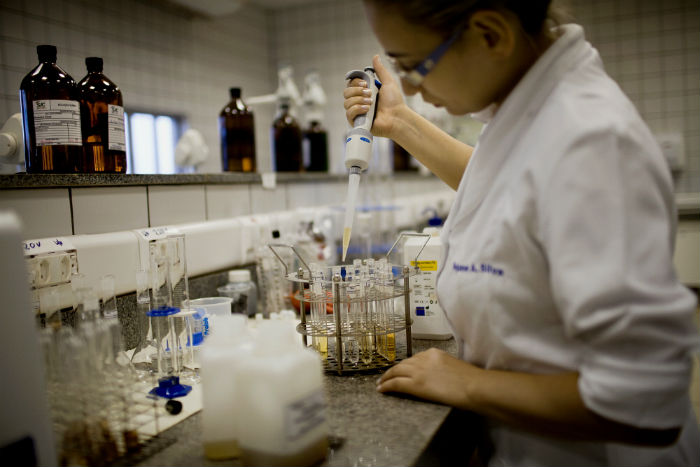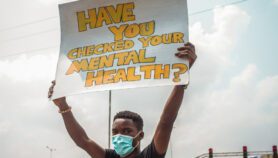By: Creso Sá
Send to a friend
The details you provide on this page will not be used to send unsolicited email, and will not be sold to a 3rd party. See privacy policy.
The country must stop marginalising the scientists it needs to deal with Zika, pollution and recession, says Creso Sá.
The uproar around the impeachment of President Dilma Rousseff has pushed to the sidelines three major crises that Brazil faces — and the fact that the country is undermining its ability to deal with them.
To fully recover that ability, the federal government must move science from a low-priority policy file in Brasilia’s realpolitik to the centre of the national development agenda.
The three crises
The first crisis was the worst environmental disaster in Brazil’s history, both in terms of the area affected and costs of the damage. The failure of three dams in the state of Minas Gerais in late 2015 released 62 million cubic metres of mine waste into three rivers, destroying ecosystems and depriving local fishing communities of their livelihoods. Recovery will take decades.
The second is Brazil’s biggest annual economic contraction in a quarter century: a 3.8 per cent drop in GDP (gross domestic product) in 2015, with a similar fall likely this year. Unemployment has reached 11 per cent. The low-value-added exports that previously ensured economic growth, will not suffice to raise the country out of this sinkhole — so longstanding calls for greater industrial innovation become more pressing.
“The economic downturn undoubtedly played a role in the cuts — but the federal government has had a hand in it too, repeatedly demonstrating a lack of priority for science.”
Creso Sá
Finally, Brazil needs to deal with the Zika virus epidemic. More than 1,330 cases of foetal abnormalities linked to Zika have been confirmed and some 3,330 are under investigation. Those affected need healthcare and social assistance. And with Zika cases reported in other countries, not to mention concerns about the forthcoming Olympic Games in Rio increasing the risk of its spread, this is a global health threat, adding to the pressure on Brazil to act.
These disparate problems have something in common: solving them will require tapping scientific and technical expertise in public agencies, research institutes, universities and industry. Will the federal government under Interim President Michel Temer (or, less likely, under an absolved President Rousseff) be capable of leading the charge?
Diverted funding
To judge from how science has fared in Brazil recently, and from the early moves of the interim president, there is no reason for optimism.
Last year, science suffered severe budget cuts. The Ministry of Science, Technology and Innovation has lost a third of its budget over the past two years. Approved research projects have not received promised money, funding competitions have been suspended and large investments in a new set of science and technology institutes have been delayed. Public universities and research institutes have lacked the money for basic running costs.
The economic downturn undoubtedly played a role in the cuts — but the federal government has had a hand in it too, repeatedly demonstrating a lack of priority for science.For instance, legislation in 2014 reallocated funding that had been earmarked for science towards social spending. Similarly, 6.4 billion reals (US$1.9 billion) were switched from scientific research and infrastructure to fund a single initiative — the Science Without Borders exchange programme, an initiative created in 2011 by President Rousseff that has since been suspended after severe criticism.
Things took a turn for the worse with recent political events. Upon becoming interim president, Temer merged the Ministry of Science, Technology and Innovation with the Ministry of Communications, puzzling and frustrating the scientific community. He considered an evangelical, creationist bishop to lead the new ministry, before appointing Gilberto Kassab, a former Sao Paulo mayor without any background in science governance. He is the fourth science minister in less than two years.
Short-term thinking
Frustration with the deteriorating science environment led prominent neuroscientist Suzana Herculano-Houzel to make public her decision to leave the country for a job at Vanderbilt University in the United States in May. Her vocal criticism hit a nerve and was widely reported and discussed on social media.
The Temer administration’s justification for these moves has centred on the need to control public spending and national debt. This poses an obvious obstacle to reinvesting in science — but the fundamental issue is the persistent lack of a vision for the role of science as a national asset. Scientists are viewed as a peripheral special interest, not a stakeholder in the country’s development debate.
But serious science is not done in spurts and starts. Research agendas that support national challenges, lead to impactful discoveries and train scientific talent happen over years and even decades. None will flourish spontaneously if scientists cannot plan ahead or simply keep basic operations running.
Although important, a dedicated science ministry is not enough. Brazilian science needs stable governance. That will only happen with strong political support to federal science agencies and institutions.
The scientific community — including organisations such as the Brazilian Academy of Science and the Brazilian Society for the Advancement of Science — has been vocal in these debates and vehemently condemned the merger of the science ministry. These efforts are important, but more must be done to wrestle science away from its marginalised position. Scientists at large need to make their voices heard too and engage with political representatives at local and state levels. Stories must be told about local accomplishments and the results they can deliver.
Science can no longer be seen as a remote and disconnected sector vying for support. Brazil needs to cultivate sophisticated knowledge and expertise to address its environmental, health and economic tragedies.
Creso Sá is a professor at the University of Toronto, Canada. He writes on science policy and higher education. His latest book, The entrepreneurship movement and the university, was published in 2015. Sá can be contacted via cresosa.com and at [email protected]














